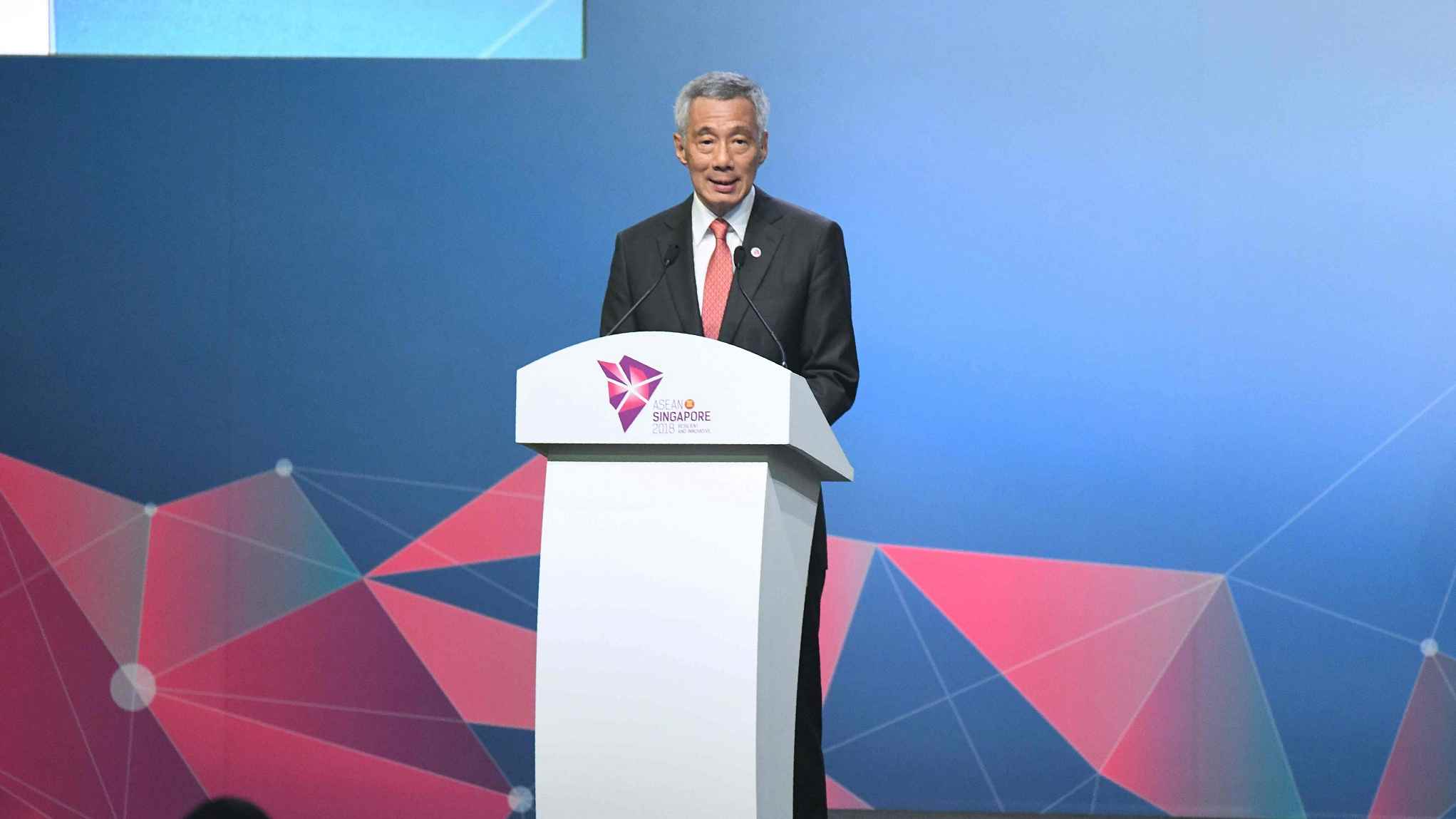
Opinions
22:46, 14-Nov-2018
Opinion: China can play a leading role in promoting multilateralism
Updated
22:30, 17-Nov-2018
CGTN's Yang Chuchu

Editor's Note: The article is based on an interview with Azmi Hassan, a senior political analyst based in Kuala Lumpur, Malaysia. The article reflects the expert's opinion, and not necessarily the views of CGTN.
The 33rd summit of the Association of Southeast Asian Nations (ASEAN) opened on Tuesday in Singapore with a call for supporting multilateralism and international cooperation.
During the summit, Singaporean Prime Minister Lee Hsien Loong emphasized the ASEAN is facing challenges, saying that ASEAN members should work together to deal with them.
According to Azmi Hassan, a senior political analyst based in Kuala Lumpur, Malaysia, there are problems, especially with the revival of unilateralism and this is where China and the ASEAN could work together.
"There are problems with the South China Sea. The Code of Conduct (COC) is not yet finalized. China and the ASEAN need to cooperate to finalize the COC as soon as possible. Myanmar's Rohingya crisis is also ripping it apart. I think these three issues are very important," Azmi said.

Russian President Vladimir Putin talks to Singaporean Prime Minister Lee Hsien Loong during the 33rd ASEAN Summit in Singapore, November 14, 2018. /VCG Photo
Russian President Vladimir Putin talks to Singaporean Prime Minister Lee Hsien Loong during the 33rd ASEAN Summit in Singapore, November 14, 2018. /VCG Photo
With the US heading for protectionism and unilateralism, it has imposed tariffs on Chinese goods, shaking not only the world's two largest economies but also the whole world, including ASEAN members.
Implying that multilateralism is under threat from political pressures, Lee on November 12 called for open markets and greater integration in Southeast Asia. “The ASEAN has great potential, but fully realizing it depends on whether we choose to become more integrated, and work resolutely towards this goal in a world where multilateralism is fraying under political pressures,” Lee said.
Azmi agrees that integration is what it needs. According to him, the ASEAN should work together, not only within themselves but also with other major powers, including China and the US. “Unfortunately, the US is going for unilateralism, which is not good for globalization,” Azmi added.
However, China, as a firm supporter of globalization, has shown its firm stance on cooperation. On many occasions, it has repeatedly stressed its stance on multilateralism.

Russian President Vladimir Putin poses for a group photo with ASEAN leaders at the ASEAN-Russia Summit in Singapore, November 14, 2018. /VCG Photo
Russian President Vladimir Putin poses for a group photo with ASEAN leaders at the ASEAN-Russia Summit in Singapore, November 14, 2018. /VCG Photo
In the recently concluded China International Import Expo (CIIE), Chinese President Xi Jinping announced China's determination to promote imports, with China's imported goods and services estimated to exceed 30 trillion US dollars and 10 trillion US dollars, respectively, in the next 15 years.
In recent years, China and the ASEAN have contacted frequently, bringing great achievements such as the approval of COC framework in the South China Sea in August 2017. The trade volume between China and the ASEAN amounted to 514.8 billion US dollars in 2017.
During the ASEAN summit, Chinese Premier Li Keqiang stressed, “We are also willing to work with others on how we can make trade fairer so that free trade receives a stronger boost and grows at a higher pace. We need to send out a strong message internationally.”
“I think China can lead the way, showing that how multilateralism can work in this kind of economy,” Azmi said while talking about China's role in promoting multilateralism.
In his view, China and other ASEAN countries can show how globalization can make positive impacts, and how major powers can work with other nations in multilateralism, a good reason for China to upgrade its relations with the ASEAN.
(If you want to contribute and have specific expertise, contact us at opinions@cgtn.com.)

SITEMAP
Copyright © 2018 CGTN. Beijing ICP prepared NO.16065310-3
Copyright © 2018 CGTN. Beijing ICP prepared NO.16065310-3